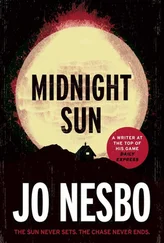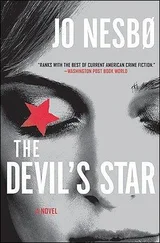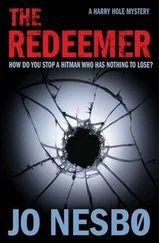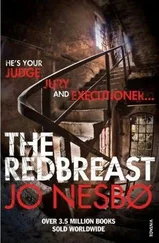Jo Nesbo - The Son
Здесь есть возможность читать онлайн «Jo Nesbo - The Son» весь текст электронной книги совершенно бесплатно (целиком полную версию без сокращений). В некоторых случаях можно слушать аудио, скачать через торрент в формате fb2 и присутствует краткое содержание. Год выпуска: 2014, Издательство: Random House, Жанр: Триллер, на английском языке. Описание произведения, (предисловие) а так же отзывы посетителей доступны на портале библиотеки ЛибКат.
- Название:The Son
- Автор:
- Издательство:Random House
- Жанр:
- Год:2014
- ISBN:нет данных
- Рейтинг книги:3 / 5. Голосов: 1
-
Избранное:Добавить в избранное
- Отзывы:
-
Ваша оценка:
- 60
- 1
- 2
- 3
- 4
- 5
The Son: краткое содержание, описание и аннотация
Предлагаем к чтению аннотацию, описание, краткое содержание или предисловие (зависит от того, что написал сам автор книги «The Son»). Если вы не нашли необходимую информацию о книге — напишите в комментариях, мы постараемся отыскать её.
The Son — читать онлайн бесплатно полную книгу (весь текст) целиком
Ниже представлен текст книги, разбитый по страницам. Система сохранения места последней прочитанной страницы, позволяет с удобством читать онлайн бесплатно книгу «The Son», без необходимости каждый раз заново искать на чём Вы остановились. Поставьте закладку, и сможете в любой момент перейти на страницу, на которой закончили чтение.
Интервал:
Закладка:
‘Same ammo type, but it’s a very common one, isn’t it?’
‘Yes.’
‘So what makes you so sure there’s a connection?’
‘I’m not sure,’ Simon said, staring at the traffic light as if it were a bomb with a timer. ‘But only ten per cent of the population is left-handed.’
She nodded. She tried her own reasoning. Gave up. Sighed. ‘Pass, I give up again.’
‘Kalle Farrisen was tied to the radiator by someone who is left-handed. Agnete Iversen was shot by someone who is left-handed.’
‘I understand about the former. But the latter. .’
‘I should have worked it out much earlier. The angle from the doorway to the kitchen wall. If the bullet that killed Agnete Iversen was fired by a right-handed killer and from the spot I first believed, he would have had to stand on one side of the flagstone path and there would be prints in the soft soil from one of his shoes. The answer is of course that he had both feet on the flagstones because he was shooting with his left hand. Poor police work on my part.’
‘Let me see if I’ve got this right,’ Kari said, resting her chin on her palms. ‘There is a connection between Agnete Iversen and the three victims here. And the killer has gone to great lengths to make sure we don’t spot it because he’s afraid it’s that very connection which will identify him.’
‘Good, Officer Adel. You’ve changed your perspective and location, and now you can see.’
Kari heard an angry hooting and opened her eyes again.
‘The light’s green,’ she said.
23
It was no longer raining quite as hard, but Martha had pulled her jacket over her head as she watched while Stig retrieved the key and unlocked the basement door. The basement, like the garage, was filled with objects which told a family history; rucksacks, tent pegs, a pair of red down-at-heel boots which looked as if they had been used in some sort of sport, boxing, perhaps. A sledge. A manual lawnmower that had been replaced with a petrol-driven one in the garage. A big, rectangular chest freezer. Wide shelves with cordial bottles and jam jars joined together by cobwebs, and a nail with a key and a tag whose faded letters would once have told you what the key was for. Martha stopped at the row of skis, some of them still coated with the mud from an Easter skiing trip. One of the skis, the longest and the broadest, had split lengthways.
When they got inside the house, Martha realised immediately that no one had lived there for years. Perhaps it was the smell, the dust or maybe it was the invisible layer of time. And she had her theory confirmed when they entered the living room. She couldn’t see a single object that had been manufactured in the last decade.
‘I’ll make some coffee,’ Stig said and went into the adjacent kitchen.
Martha looked at the photographs on the mantelpiece.
A wedding photo. The likeness, especially to the bride, was striking.
Another photograph — probably taken a couple of years later — showed them with two other couples. Martha had a hunch that it was the men who linked the couples together, and not the women. It was to do with the way the men looked like each other. Their identical, almost posturing stances, the confident smiles, the way they took up space, like three friends — and alpha males — leisurely marking out their respective territory. Equals, she thought.
She went out into the kitchen. Stig was standing with his back to her, leaning towards the fridge.
‘Did you find any coffee?’ she asked.
He turned, quickly snatched a yellow Post-it note from the fridge door and stuffed it in his trouser pocket.
‘Yes,’ he said and opened the cupboard above the sink. He measured coffee into a filter, put water in the coffee-maker and switched it on with quick, familiar movements. He took off his jacket and hung it on the back of one of the kitchen chairs. Not the one closest to him, but the one closest to the window. His chair.
‘You used to live here,’ she declared.
He nodded.
‘You look a lot like your mother.’
He smiled wryly. ‘That’s what people said.’
‘Said?’
‘My parents are no longer alive.’
‘Do you miss them?’
She could see it in his face immediately. How this simple, almost commonplace question hit him like a wedge into an opening he had forgotten to seal. He blinked twice and opened and closed his mouth, as if the pain was so unexpected and so sudden that he had lost the power of speech. He nodded and turned to the coffee-maker, adjusting the pot as if it wasn’t sitting on the hotplate properly.
‘Your father looks very authoritarian in those photographs.’
‘He was.’
‘In a good way?’
He turned to her. ‘Yes, in a good way. He took care of us.’
She nodded. She thought about her own father, who had been the opposite.
‘And you needed looking after?’
‘Yes.’ He smiled quickly. ‘I needed looking after.’
‘What? You’re thinking of something.’
He shrugged.
‘What is it?’ she said again.
‘Oh, I saw you look at the broken ski.’
‘What about it?’
He gazed absent-mindedly at the coffee which had started dripping into the pot. ‘We used to visit my grandfather up in Lesjaskog every Easter. There was a ski-jumping hill there where my father held the record. My grandfather had held the previous record. I was fifteen years old and I had trained all winter so that I could set the new record. Only it was a late Easter that year, mild, and when we came up to my grandfather’s there was hardly any snow left at the bottom of the hill which lay in the sun and twigs and rocks were sticking up. But still I had to try it.’
He glanced quickly upwards at Martha, who nodded to encourage him.
‘My father knew how much I wanted to have a go, but he told me not to, it was too dangerous. So I just nodded and talked a boy from a neighbouring farm into being my witness and measuring the length. He helped me spread extra snow in the area where I was planning to land, and then I raced up to the top of the hill, put on the skis which my father had inherited from his father, and set off. The hill was unbelievably slippery, but I came off to a good start. In fact, much too good. I flew and I flew, I felt like an eagle, I didn’t give a damn about anything because this was it, this was exactly what it all was about, nothing could be bigger than this.’ Martha could see his eyes shine. ‘I landed roughly four metres beyond the place where we had spread the snow. The skis cut right through the sludge and a sharp stone sliced open my right ski as if it was a banana split.’
‘And what happened to you?’
‘I snowploughed. I carved a furrow across the slush and well beyond it.’
Alarmed, Martha put her hand on her collarbone. ‘Good God. Were you hurt?’
‘Black and blue. And I got soaking wet. But I didn’t break anything. And even if I had, I probably wouldn’t have noticed because my only thought was, what will my father say? I’ve done something he told me not to. And I’ve ruined his ski.’
‘And what did he say?’
‘He didn’t say much, he just asked me what I thought would be a suitable punishment.’
‘And what did you say?’
‘I told him to ground me for three days. But he said that as it was Easter, two days would have to do. After my father’s death, my mother told me that while I was grounded, he got the boy from the farm to show him where I landed and tell him the whole story over and over. And that he had laughed until he cried every time. But my mother made him promise not to tell me, that it would simply encourage me to more madness. So instead he took the damaged ski home under the pretext of wanting to fix it. But my mother said that was nonsense, that it was his most precious keepsake.’
Читать дальшеИнтервал:
Закладка:
Похожие книги на «The Son»
Представляем Вашему вниманию похожие книги на «The Son» списком для выбора. Мы отобрали схожую по названию и смыслу литературу в надежде предоставить читателям больше вариантов отыскать новые, интересные, ещё непрочитанные произведения.
Обсуждение, отзывы о книге «The Son» и просто собственные мнения читателей. Оставьте ваши комментарии, напишите, что Вы думаете о произведении, его смысле или главных героях. Укажите что конкретно понравилось, а что нет, и почему Вы так считаете.











